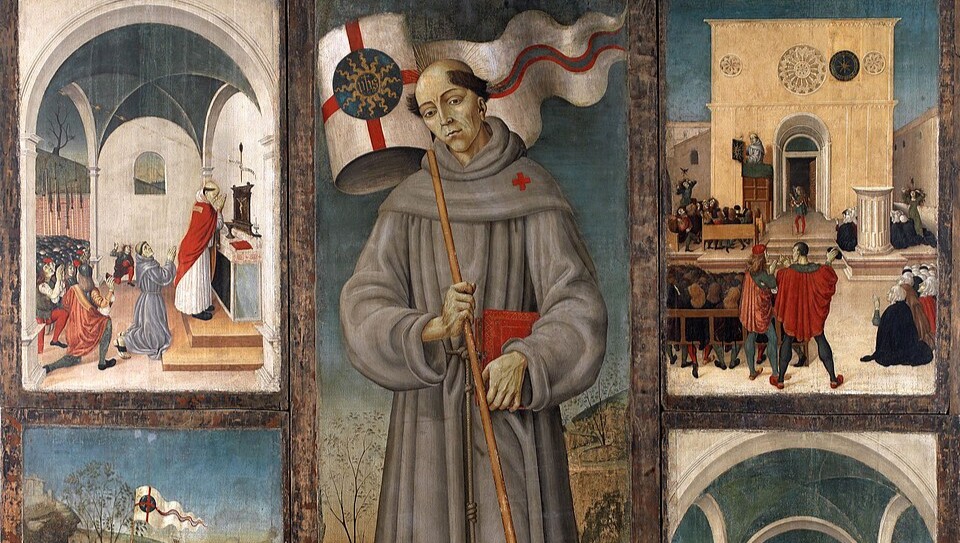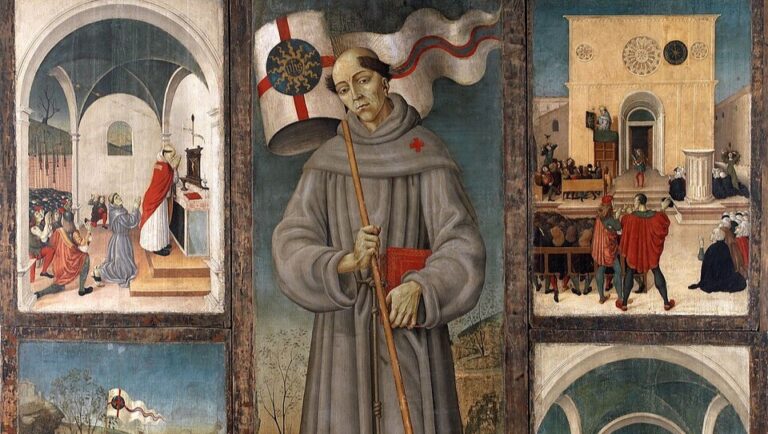Today marks the sixty-sixth anniversary of the martyrdom of the Hungarian Blessed János Brenner, killed by the Communists because of his Catholic zeal.
Born in Szombathely, Vas County, on 27 December 1931, János, the second of three children—both of his brothers would follow in his footsteps to become priests. He began his novitiate at the Cistercian Abbey at Zirc, a town near Veszprém, Hungary, on 19 August 1950 along with eighteen other young men. He took the white habit of the Cistercian novices choosing the name of ‘Anasztáz’ (Greek for ‘Resurrection’).
On 7 September the Soviet-backed Hungarian government published a decree which prohibited the functioning of almost all religious orders in the country and set a 15 October deadline for the total emptying of the Monastery of Zirc. The novice master, Fr. Lóránt (Lawrence) ‘Sigmond, moved all of the young men of the abbey to live with families in the town where they continued their formation in private and with much secrecy. In order to avoid suspicions from the Soviet occupiers, Brenner enrolled for two semesters as a secular student at the Academy of Religious Studies in Budapest. He had to, however, halt his Cistercian training because of the ongoing Communist oppression. He thus attended seminary in Budapest and in Győr and on 19 June 1955, he was ordained to the priesthood in the Cathedral of the Visitation of Our Lady in by Bishop Sándor Kovács.
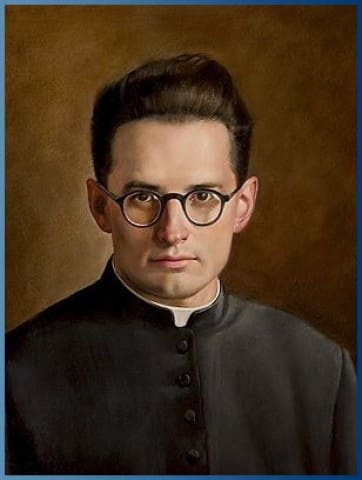
After his ordination as a diocesan priest Brenner was appointed to be a chaplain at All Saints Church, a parish under the care of the Cistercians at Rábakethely–Szentgotthárd, a small town near the Austrian border, with three neighbouring villages to take care from that town. There he was embraced with affection by the faithful.
He influenced many youth and young adults to reject the atheistic communist doctrine,
thus bringing them into the fulness of the Catholic faith. Regrettably, at least for him, this drew the ire of the Communist government.
As some attest, ‘One autumn evening, when he was on his way home on his motorcycle from the town of Farkasfa, unknown people threw logs in from of him, but with a few manoeuvres he managed to avoid them. When he arrived at home, he said “They weren’t lucky”, and had a good laugh.’
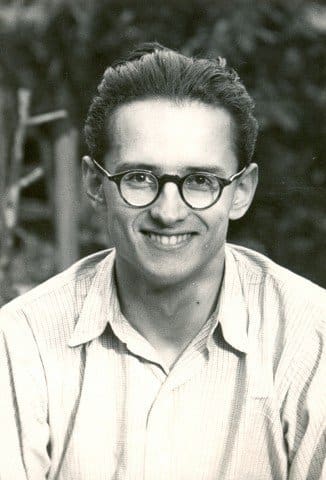
However, on a dark early morning night on 15 December 1957, Brenner received word by an altar boy of his parish that one of his parishioners was dying and needed Viaticum (reception of the Eucharist before the person dies). In truth, this was a trap, as the Communists knew that he would do anything for his flock. He was attacked by his Communist enemies several times on the way, but managed to escape. He was eventually caught near the suspected patient’s house, which proves that his killers knew: János Brenner takes his profession seriously. When he reached the home of the sick man, ‘with the Eucharist around his neck, [the murderers] stabbed him thirty-two times’. They also stomped on his neck, which resulted in multiple fractures of the hyoid bone and horns of the laryngeal cartilage.
He was found that morning dead, still holding the Eucharist in his hands.
Because of his bravery, he would be granted the title ‘Hungarian Tarcisus’. His family held a large funeral at the Salesian Church of Saint Quirinus on 18 December. His ordination motto was inscribed upon the tomb: ‘All things work together for good to those who love God.’ (Romans 8, 28) He was beatified on 1 May 2018.
The Legacy of Blessed Brenner
This past 16 and 17 September Blessed Brenner was honoured at the Cistercian Abbey of Heiligenkreuz, Austria (just outside of the capital city of Vienna). Within the Holy Cross Chapel of the abbey complex, the Cistercians inaugurated the new sacred art work they commissioned from a young Austrian painter, Clemens Maria Fuchs. Among the various panels, he did a mural behind the altar of the chapel. Seeing how the main purpose of sacred art is to glorify and serve God and to direct the faithful mind to prayer, Clemens painted the image of the Blessed Cistercian—his image is also in the main abbey church.
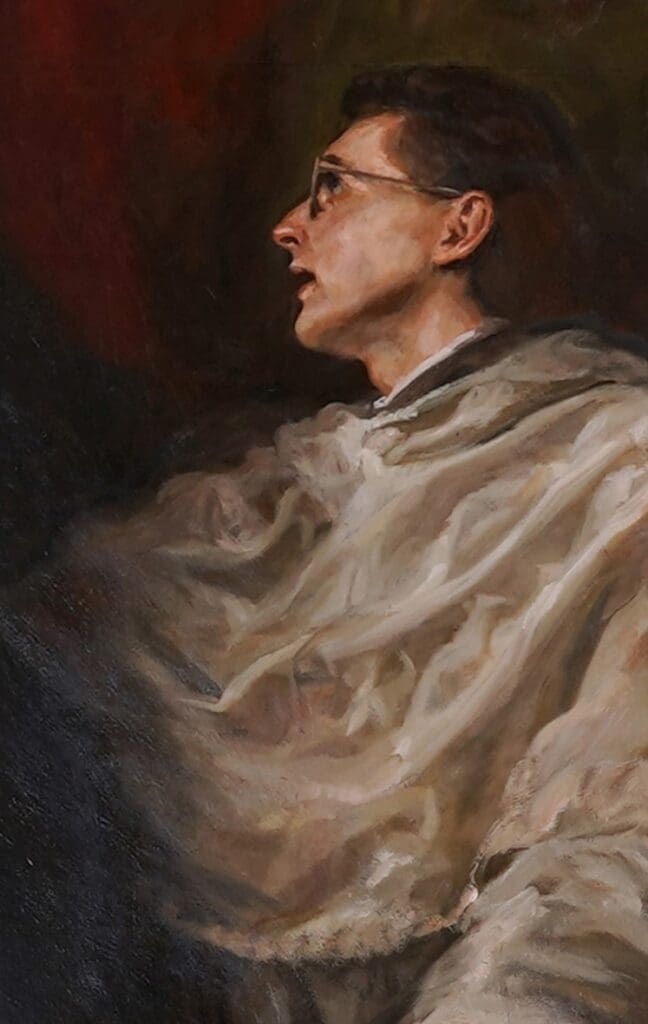
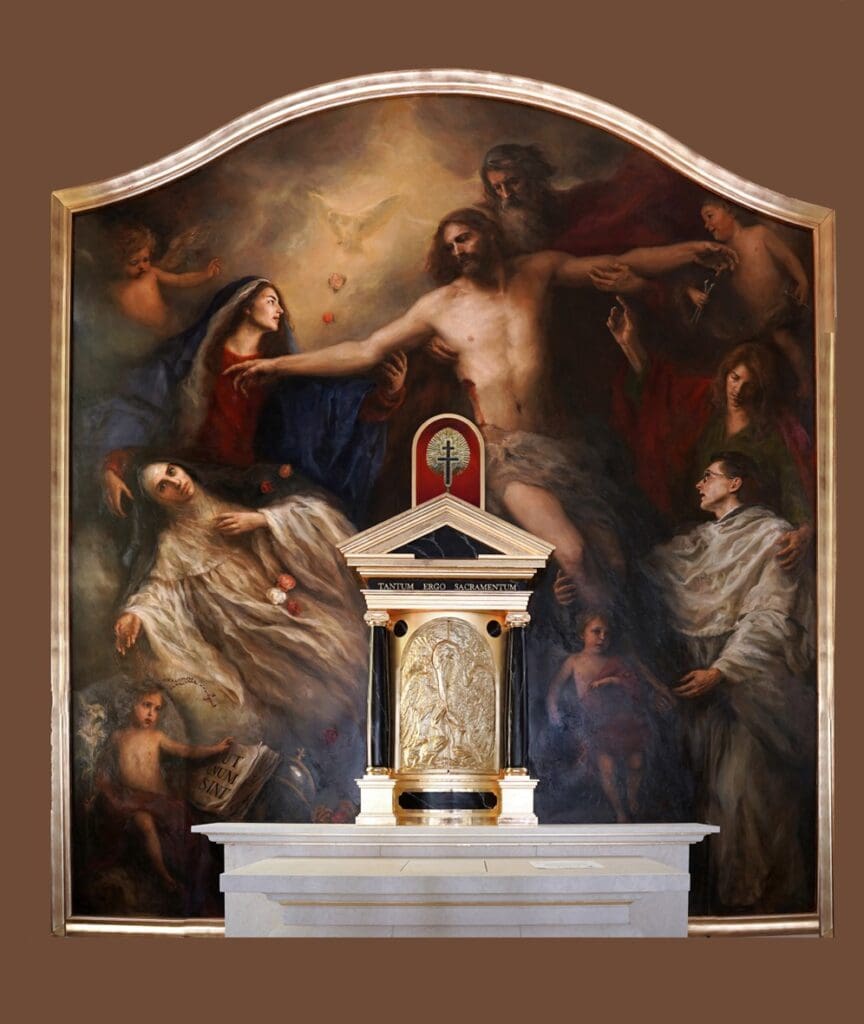
Abbey of Heiligenkreuz where Blessed Brenner is depicted in a Cistercian habit.
Images: Courtesy of Elisabeth Fürst
Blessed Brenner is particularly remembered at Heiligenkreuz because he initially wanted to join that abbey, but was unable to do so because of the aforementioned Soviet oppression. According to his brother, Father József Brenner, Vicar General for the Diocese of Szombathely, who was present for the groundbreaking event, ‘János always maintained a Cistercian spirituality.’
During the oppression by the Communists, which specifically targeted Catholic churchmen, such as the Venerable Cardinal József Mindszenty, many priests were coerced to flee the country. Blessed Brenner, however, chose to stay, saying: ‘I’m not afraid. I’m happy to stay.’ His reason for doing so is found in his spiritual diary:
‘Lord, you know that I am not looking for happiness in this life since I have placed everything in you, even if the road is rough. I look at your pain ridden face and follow you. I ask you only one thing: May I always fulfil most precisely what you give to me as my vocation.’
The Chapel of the Good Pastor was built in 1989 on the spot were he died,
and is a popular place of pilgrimage for people throughout the country.
Blessed Brenner was not just a martyr for the Eucharist because of his love and devotion for the Catholic Church and the faithful. He gave his life for his vocation. His strong belief that, as the Church teaches, the reception of the Sacraments is essential for drawing closer to God, and eventually for going to heaven, was the essence of his life.
His sacrificing his own life serves as a reminder that we should not be ashamed, let alone fear, bearing testimony to our Catholic faith, especially in the politically correct society we live in. Blessed János Brenner, pray for us!



